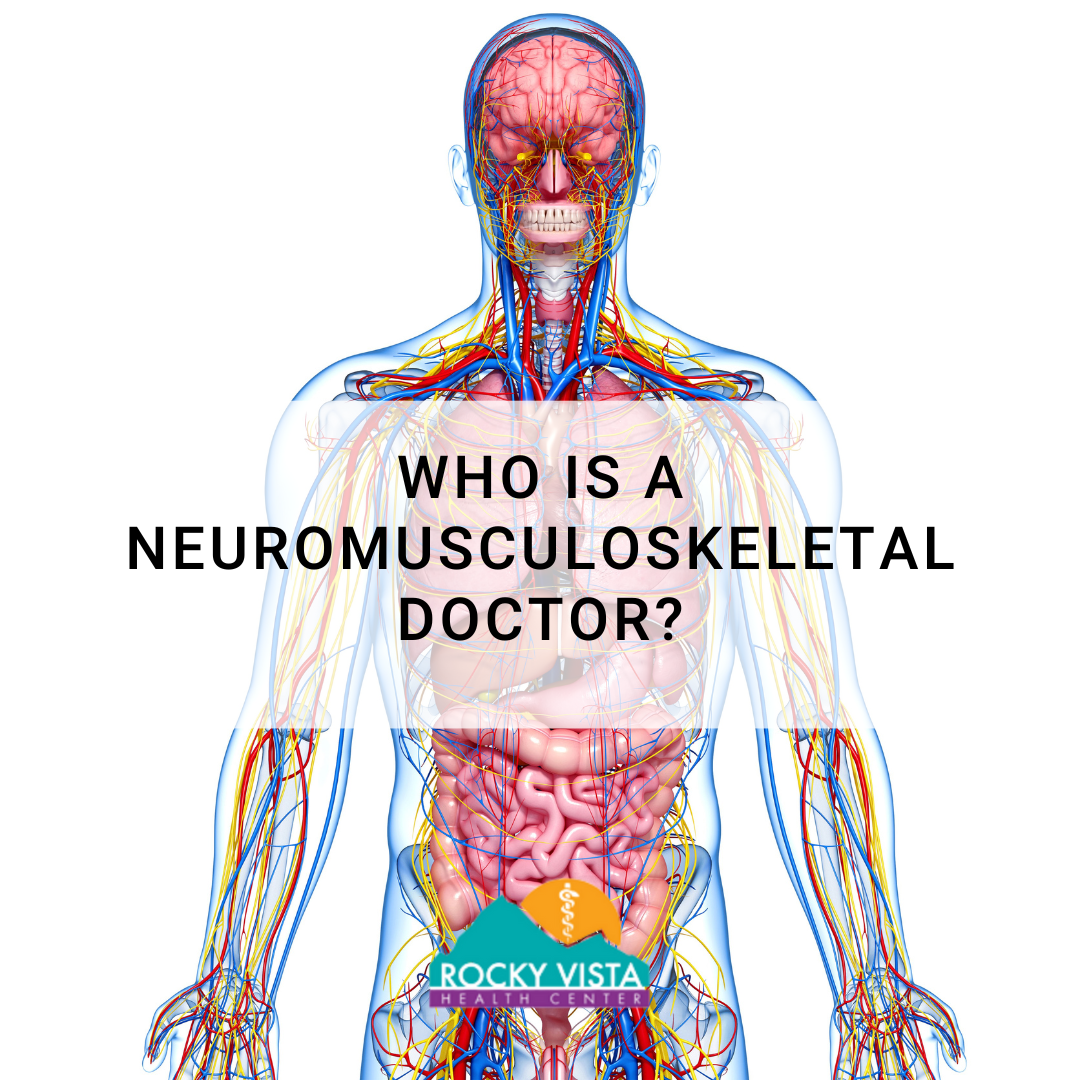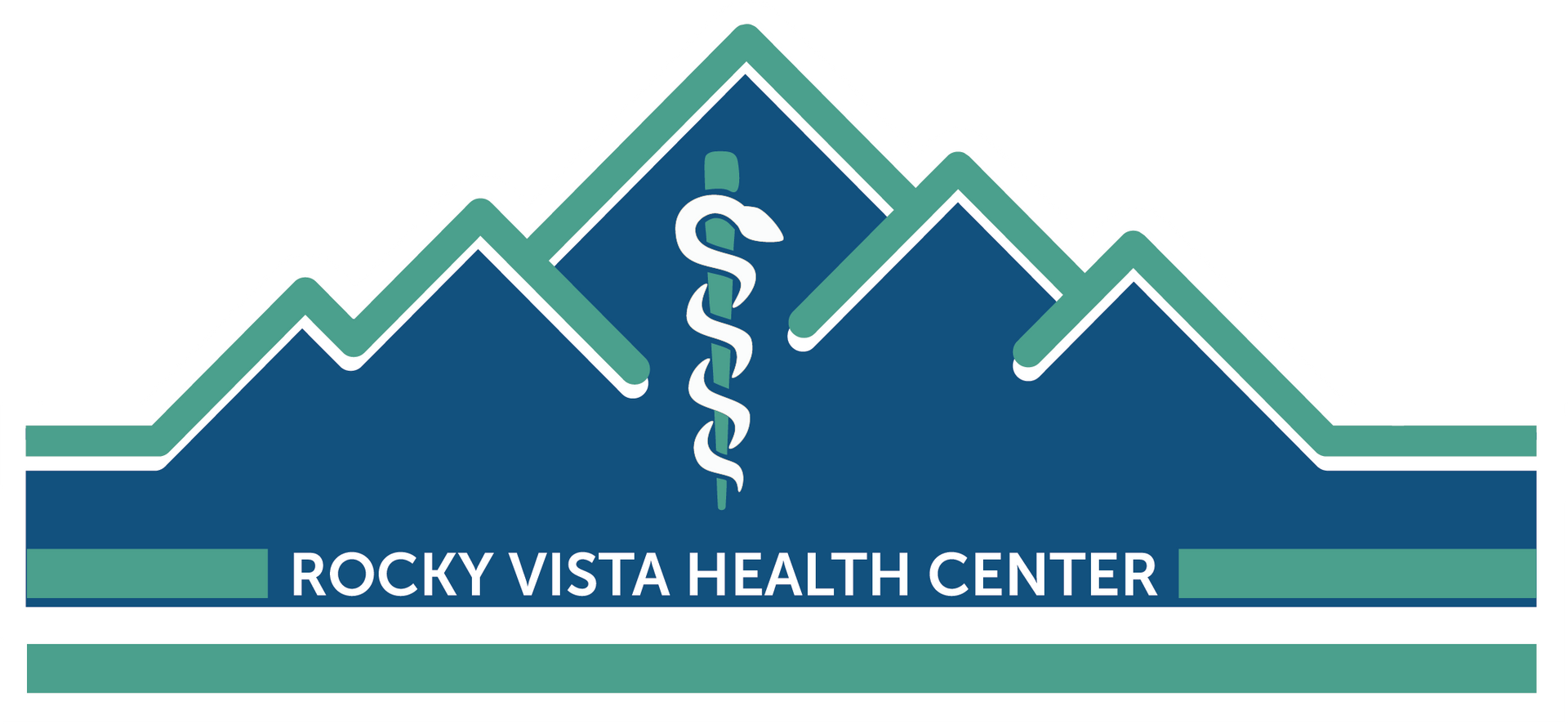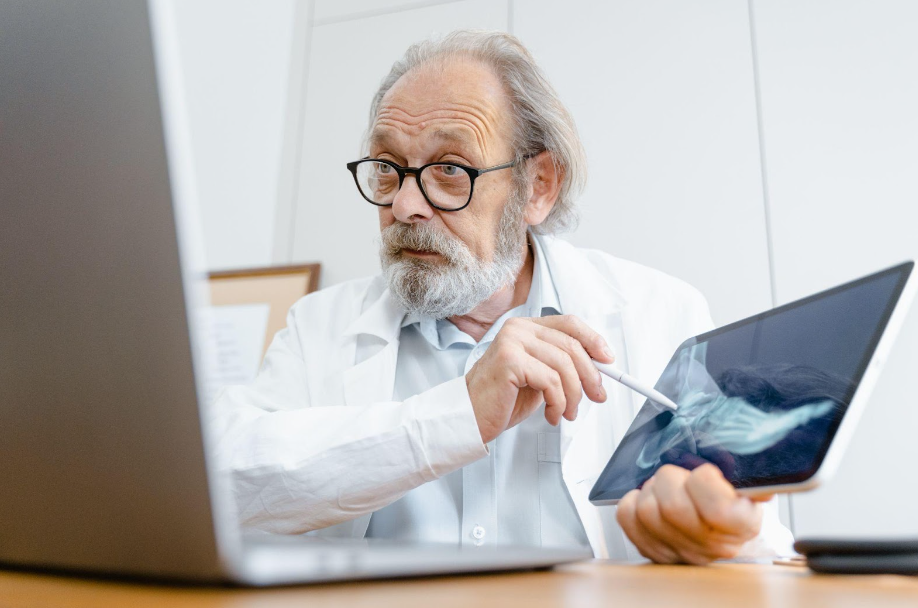Who Is a Neuromusculoskeletal Doctor?
Who Is a Neuromusculoskeletal Doctor?

Neuromusculoskeletal doctors, also known as DOs or Doctors of Osteopathic Medicine, specialize in treating not just the symptoms but the entire person to cure a variety of physical and mental conditions. Neuromusculoskeletal medicine or NMM doctors focus on preventive health care since their line of treatment doesn’t just focus on fighting the illness but teaches a patient to develop lifestyle attitudes that can prevent such illnesses in the first place. NMM doctors target all the parts of your neuromusculoskeletal system (nerves, muscles, bones, skull and spine) and are experts in the diagnosis and treatment of musculoskeletal and related neurological medical ailments.
Neuromusculoskeletal medicine is a specialty that is available only to a Doctor of Osteopathic Medicine (DOs). Such specialized doctors must complete a one-year American Osteopathic Association (AOA) approved residency, a two-year osteopathic internship, or an integrated three-year program.
An NMM doctor is also known by the following names: Neuromuscular doctor; Doctor of Osteopathic Medicine or DO; NMM/OMM doctor; C-NMM/OMM (Doctor of Osteopathic Medicine, and Certified-Neuromusculoskeletal Medicine/Osteopathic Manipulative Medicine).
What is Osteopathic Medicine?
Osteopathic medicine can be described as a "whole-person" approach to medicine using hands-on, osteopathic evaluation and manipulative medicine.
How are DOs Different?
DOs or Doctors of Osteopathic Medicine are complete physicians who, along with MDs, are licensed to prescribe medication and perform surgery. They are doctors first and then trained to be specialists. But their approach is different which gives them an extra edge. They follow a holistic approach to patient care. Many DOs practice as family-care physicians in small towns and rural areas and often care for entire families and communities.
Though all DOs learn the fundamentals of osteopathic manipulative treatment (OMT) in medical school and then go on to specialize in family medicine or internal medicine, a DO who pursues a residency in neuromusculoskeletal medicine (NMM) and osteopathic manipulative medicine (OMM) is trained to have a deeper understanding of applying osteopathic manipulative treatment or OMT to patients with a broad range of conditions.
Though OMM is effective for relieving muscle and joint pain, osteopathic manipulative medicine can be used to diagnose and treat many other medical conditions and injuries such as:
· Acid reflux
· Depression
· Asthma
· Carpal tunnel syndrome
· Headaches and migraines
· Insomnia
· Menstrual cramps
· Overuse injuries (e.g., tennis elbow)
· Sinus problems
· Temporomandibular Joint Disorders (TMJ)
The Functions of an NMM Doctor
○ ·Evaluating a patient’s medical history and educating the patient about the disease and its prevention.
○ Performing physical examinations of the muscle and bones, and nerve alignment.
○ He can order lab tests, imaging tests etc. for further investigation and prescribe medication.
○ An NMM can diagnose and treat a range of acute and chronic diseases including high blood pressure, diabetes, cancer, depression, and osteoporosis.
○ If required, he collaborates with other specialists and members of a patient’s healthcare team to provide optimum care.
○ Also provides ongoing care in a clinic, hospital, or long-term care facility.
○ Performs osteopathic, hands-on manipulations.
Who Should See a Neuromusculoskeletal Doctor?
Osteopathic Manipulative Therapy is for people of all ages and therefore anyone can consult an NMM doctor for different medical conditions. For example, this treatment is very useful for newborns who have colic or trouble nursing. Older adults suffering from back pain, headaches, joint pain or pain from accidents also benefit from OMT. Such patients benefit from a hands-on approach to healthcare that promotes healing from within the body. Such a method of treatment is also well-suited for patients with acute and chronic pain due to illness and surgery.
In addition to OMT, NMM doctors use medication and other techniques as well for diagnoses and cures.
When Must You Consult a Neuromusculoskeletal Medicine Doctor?
If you have a disease or disorder that requires constant care or routine medical care, consider taking advice from a qualified neuromusculoskeletal medicine doctor. Likewise, an NMM doctor can also be consulted if you or a loved one develops any of the following symptoms including:
● Abnormal fatigue
● Chronic or acute pain due to injury, disease, surgery, pregnancy, or menstrual cramping.
● Colic.
● Digestive problems such as acid reflux; blood in the stools, vomiting, diarrhea or constipation that have been continuously lasting for a few days.
● Difficulty urinating, urine that is passing blood, painful urination, or vaginal discharge.
● Any sudden behavioral pattern changes – that includes excessive use of alcohol or illegal drugs or high-risk thrill-seeking sexual behaviors such as having unprotected sex with multiple sexual partners.
● Headaches that occur frequently and are accompanied by other symptoms, such as fever and coughing.
● Shortness of breath or wheezing. (Immediate emergency care is advised for moderate to severe shortness of breath or call 911.).
● Sore throat, earache, or cough.
● Unusual anxiety, stress, sadness or other emotional problems.
What Conditions and Diseases Does a Neuromusculoskeletal Medicine Doctor Treat?
○ A neuromusculoskeletal medicine doctor can treat a full spectrum of musculoskeletal and related neurological diseases and medical conditions including:
○ Chronic pain that may include back & neck pain, migraine headaches or tension and anxiety headaches and fibromyalgia.
○ Neuromuscular conditions including multiple sclerosis, muscular dystrophy and amyotrophic lateral sclerosis (ALS, or Lou Gehrig’s disease).
○ Musculoskeletal conditions including osteoporosis, arthritis, sciatica, carpal tunnel syndrome, muscle strains, and ligament sprains.
○ It can also include digestive tract conditions like stomach ulcers, inflammatory bowel disease (IBD), irritable bowel syndrome (IBS) and gastroesophageal reflux disease.
○ Respiratory conditions including asthma, pneumonia, chronic obstructive pulmonary disease (COPD) and even lung cancer.
○ Genitourinary conditions including urinary incontinence, urinary tract infections, sexually transmitted diseases (STDs), prostate problems, and kidney stones.
○ Infections including the common cold, strep throat, ear infection, influenza, and tuberculosis.
○ The treatment of mental, emotional, and behavioral conditions and disorders including depression, social anxiety, substance abuse, and addiction are also included.
What Tests Does a Neuromusculoskeletal Medicine Doctor Advise?
An NMM Usually Advises the Following Tests:
○ Some general tests including complete blood count (CBC), urinalysis, blood glucose (sugar) test, electrolyte tests, liver and kidney function tests, cholesterol panel, thyroid hormone tests, EKG, blood oxygen level (pulse oximetry), and blood pressure screening.
○ Cancer screening involving mammograms, breast examination, Pap tests, fecal occult tests and rectal exams.
○ Imaging tests such as X-ray, ultrasound, computed tomography (CT) scans, endoscopy, magnetic resonance imaging (MRI), and nuclear scans.
○ Mental health screening may also be advised to ascertain depression, anxiety, obsessive-compulsive disorder, and bipolar disorder.
○ Physical examination including a manual, hands-on analysis of the patient’s posture, spine and balance.
What Procedures and Treatments Does a Neuromusculoskeletal Doctor Perform or Instruct?
A neuromusculoskeletal medicine (NMM) doctor specializes in using osteopathic manipulative treatment (OMT) to treat illness and disease. The principle of OMT is that the body’s structure is intimately connected to how well it functions. NMM doctors use their hands to diagnose injury and illness, they manipulate soft tissue as well as the deep muscles, underlying fascia, ligaments, and bones to encourage your body's natural tendency toward good health.
OMT promotes healing by balancing the circulatory, immune and lymphatic systems with the neuromuscular and skeletal systems.
An NMM Doctor Uses OMT to:
● Relieve pain
● Restore motion and flexibility
● Promote healing from within the body
OMT Includes the Following Techniques:
Myofascial Release: Massage to release tightness in the fascia, which is the connective tissue surrounding your internal body structures (muscles, organs, and joints).
Soft Tissue Massage: therapeutic massage to release muscle tension
Strain and Counter strain therapy: a gentle, technique done with the help of the patient to correct neuromuscular problems such as a muscle spasm
Craniosacral Therapy: Light touches are administered on the skull and facial bones, spine, and pelvis to improve the flow of cerebrospinal fluid and release tension.
Sometimes, when OMT is not enough, NMM doctors may also use other treatments including medication, or refer patients to other specialists such as orthopedic surgeons for treatment of severe arthritis.
Neuromusculoskeletal Medicine Training and Certification
A doctor may practice neuromusculoskeletal medicine (NMM) without becoming board-certified in the specialty. However, the required level of education, training, experience and certification is mandatory in establishing a doctor’s level of proficiency. Board certification by the American Osteopathic Board of Neuromusculoskeletal Medicine verifies that an NMM doctor has completed specialized training and has passed competency examinations.
NMM is one of many different specialties offered by the American Osteopathic Association (AOA).
A board-certified NMM doctor has:
· Completed four years of education at a US-based osteopathic medical college
· Completed a two-year residency in NMM and Osteopathic Manipulative Medicine, also called NMM/OMM
· Passed a state licensing exam that validates the doctor’s knowledge and skills
The osteopathic medical profession continues to grow with nearly two-thirds of actively participating DOs under the age of 45. By combining all other medical procedures with OMM, DOs offer their patients the most comprehensive care available in medicine today, a truly holistic approach.
Rocky Vista Health Center is dedicated to providing the best possible health care for a variety of medical conditions. Our amazing state-of-the-art medical center is equipped with the latest medical equipment. And to find out more about our long list of highly-qualified medical practitioners including the best osteopathic physicians visit us today!
Keep Your Friend's Informed



